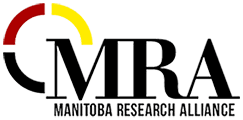View Publication
In Winnipeg, the COVID-19 crisis worsened existing social and educational inequities for refugee families. The findings show that refugee families found it difficult to navigate school closures and remote learning. Refugee families, having limited or non-existing supports and networks, struggled with school closures and remote learning. This exacerbated learning gaps for refugee students and created greater vulnerability for refugee families, affecting both mental health and wellbeing.
Refugee students faced barriers in accessing technology, participating in class discussions, and learning from home without the presence of school staff or their peers. Many students, especially those in larger families, had to learn and study in limited physical spaces with more siblings and responsibilities, and fewer academic supports from school staff and their parents. Refugee families also had to cope with isolation, limited social supports, low-quality housing, and financial insecurities: one parent said, “now, we are in a cage bounded by so many COVID rules.”
The report recommends the provision of more enhanced school supports for refugee families - like targeted language and academic supports; the promotion and maintaining of avenues to build social capital for refugee families - such as supported access to community organizations, programs, and the broader community; and addressing socioeconomic inequities through an equity lens that prioritizes the experiences of refugee families in public policies and educational spaces (e.g., enhanced social and economic opportunities in communities and more advanced supports in schools).
Grant: Community-Driven Solutions to Poverty: Challenges and Possibilities - 2020-2027
Category: Social Inclusion
